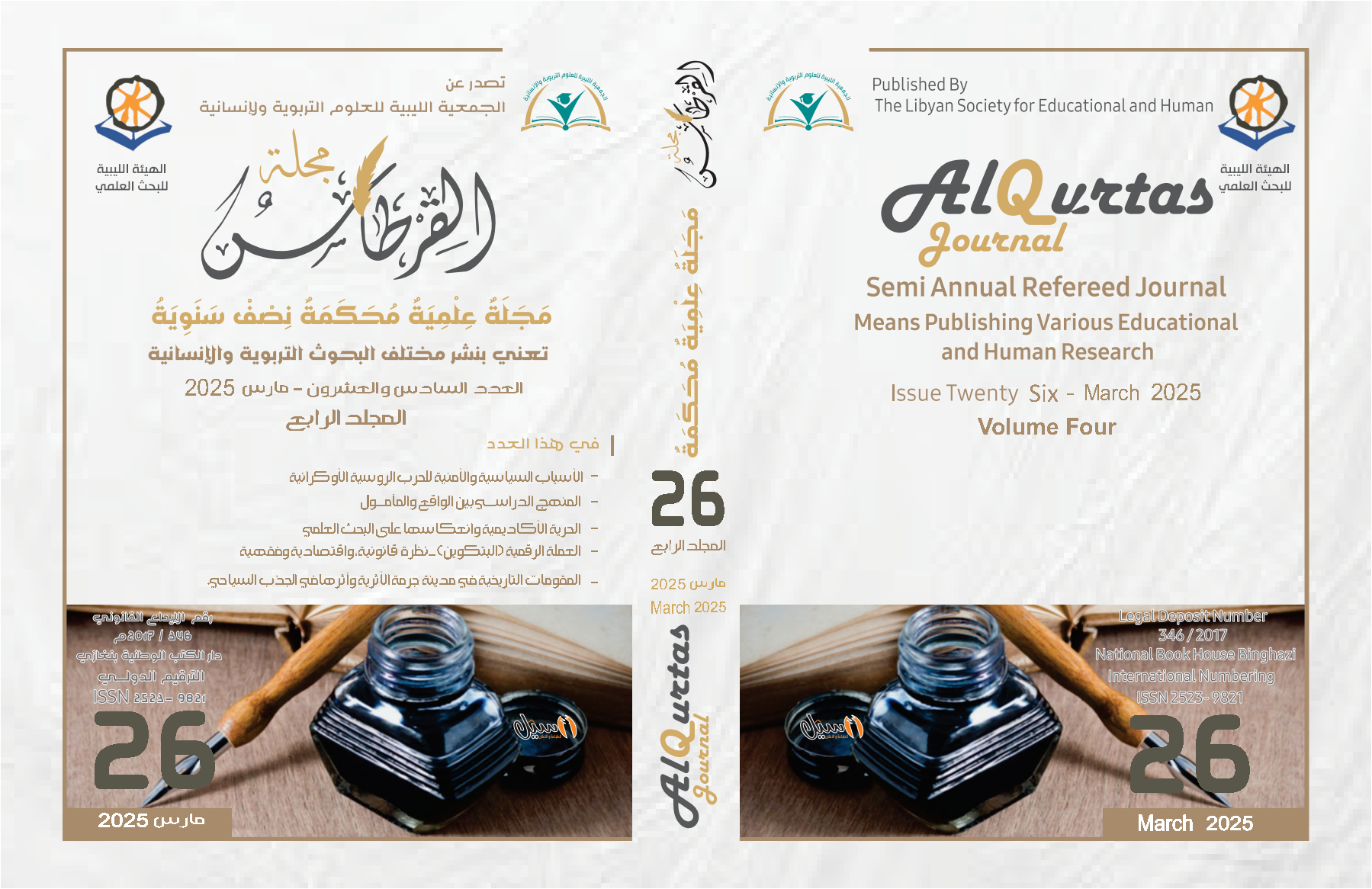Phenomenology in Arab Philosophy: An Analytical Study of Husserl’s Influence on Contemporary Arab Philosophical Thoug
Main Article Content
Abstract
This research aims to examine the influence of phenomenology, founded by the German philosopher Edmund Husserl, on contemporary Arab philosophy, with a focus on how Arab thinkers have assimilated and applied this philosophical approach in their studies. The research analyzes the reception of phenomenology in the Arab intellectual context, highlighting the challenges and difficulties faced by Arab philosophers in adopting and adapting it to their intellectual and cultural framework. The study explores the philosophical foundations of phenomenology, beginning with Husserl’s ideas and extending to its developments by philosophers such as Martin Heidegger and Maurice Merleau-Ponty. It then examines how Arab philosophers have engaged with this methodology, assessing its impact on philosophical concepts in Arab thought, particularly concerning consciousness, perception, and subjective experience. The research also identifies variations in the reception and application of phenomenology among Arab intellectuals. Utilizing analytical, historical, and comparative methodologies, the study critically examines primary philosophical texts and compares the reception of phenomenology in Arab and Western thought. It also draws from previous studies on the subject, such as those by Dr. Sami Mohammed Al-Hashimi, Dr. Laila Ahmed Al-Qaisi, and Dr. Khaled Saeed Al-Ali, extracting insights that support the research hypotheses. The study concludes that phenomenology has had a limited impact on Arab philosophy compared to its influence in Western thought, largely due to difficulties in integrating it with Arab philosophical heritage and intellectual barriers preventing its widespread adoption. However, the research argues that phenomenology holds significant potential for revitalizing Arab philosophical discourse by providing a deeper, more precise analysis of existential and epistemological issues. In conclusion, the research presents several recommendations, including promoting phenomenological research in the Arab world, incorporating this methodology into educational curricula, establishing specialized research centers, and encouraging comparative studies between phenomenology and Arab philosophical traditions. The study also emphasizes the need to critically reinterpret Western philosophy from an Arab perspective, aiming to develop a comprehensive intellectual model that integrates modernity with Arab philosophical heritage

